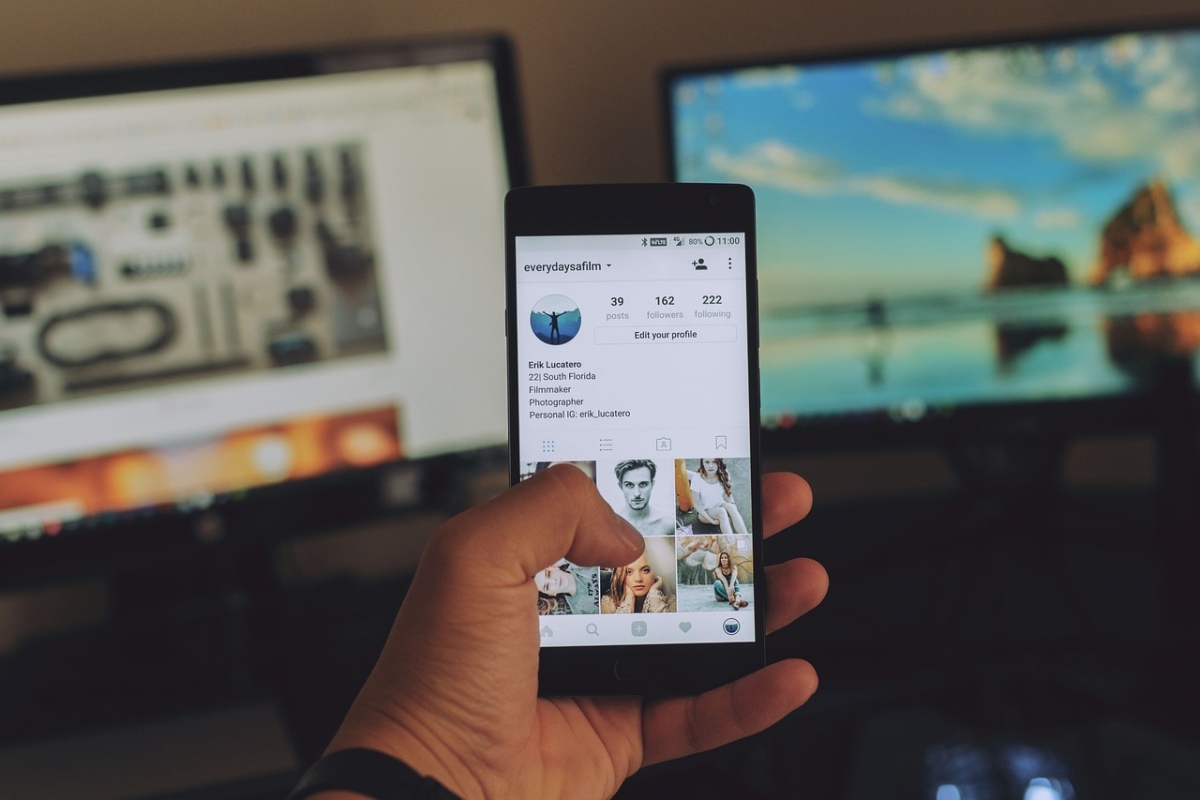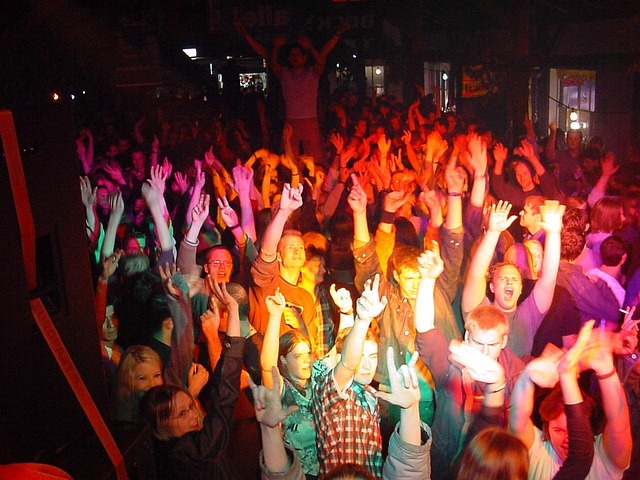FOMO: The fun everybody else has
Reviewers: Astrid Jansen and Prof. Dr. Julia Brailovskaia.
Editorial Assistant: Maren Giersiepen.
Have you ever felt that nagging sense of missing out on something exciting? Did you feel like you did not take on an opportunity that may never come again - a concert, party, or a meeting with friends? Then you probably know what it feels like to have FOMO.
What is FOMO?
FOMO, the fear of missing out, is the pervasive anxiety of being absent from rewarding experiences other people are having [1]. It is that unease that hits you when you scroll through your social media feed and see photos of a party you have missed.
Who is affected?
FOMO is common - around 69% of Americans have already experienced it [2]. More anxious people with a strong need to belong or an unclear self-concept are at a higher risk of experiencing FOMO [1]. Another risk factor is compulsive internet usage, where individuals lose control over their online behavior [3]. FOMO is also more common among younger generations who rely on external validation for their identity development [1]. Additionally, there is greater pressure to be permanently online in this age group. Interestingly, FOMO fluctuates temporally, peaking towards the end of the day and the end of the week [4].
Underlying processes
You might wonder why you feel so anxious or tense about a simple photo. Although FOMO may seem a novel concept, the psychological processes behind it are not new.
Scholars widely agree that FOMO stems from unmet basic human needs [1]. According to self-determination theory (SDT), a fundamental psychological framework [5], most human behavior is motivated by the attempt to satisfy our needs for autonomy, competence, and connection. When these needs - particularly the need to connect with others - are unmet, we seek to fulfill them. When feeling lonely, we may turn to social media in search of connection and validation. While the active use of social media - messaging friends, posting - can help usget in contact with others and satisfy our need for connection, passive scrolling is less likely to fulfill our needs [6].
Securing belonging
It is not only fun activities that spark FOMO: Even unenjoyable experiences can elicit it if they offer the chance to bond with others [7]. This paradox reflects a key aspect of FOMO: The fear of being excluded, neglected, or forgotten by significant others. Underlying this is the fear of being deprived of social validation [8].
By regularly checking our social media feeds, we aim to stay updated on what others are doing. Monitoring our peers' activities keeps us in the loop and makes us feel included. The sense of closeness to others derived purely from scrolling through their social media posts without actively interacting with them is called ambient intimacy.
Social comparison
The posts most commonly triggering FOMO on social media are those about travel, events, and food [2]. These posts highlight what others have that we don't. When we evaluate ourselves in relation to others, we are engaging in social comparison. This, in turn, can cause envy. While social comparison was once evolutionarily adaptive to assess one's status within a social hierarchy and identify potential competitors, it is less valuable nowadays: Seeing others' seemingly perfect lives, such as when browsing social media feeds, can make us feel as if we were missing out [9]. This effect is exacerbated by the bias in social media posts that disproportionately highlight social and positive activities [10].
Anticipated regret
There is another side of FOMO that is less about the social aspect than about the thing or experience itself: Anticipated regret. Faced with the multitude of incompatible options we have nowadays, many of us fear making the wrong choice [11]. We ask ourselves: "What if...?" These questions are ever more pervasive as we see depictions of all the opportunities we did not take - the parties, concerts, and travels - on social media. The fear of bad decisions can lead to a constant sense of dissatisfaction.
Moreover, it can have adverse side effects: Scrolling through a stream of overly positive portrayals of others' experiences can make us feel as if others were having more exciting or fun lives than we do [9]. In other words, we fear missing out.
Different contexts sparking FOMO
Social media feeds constitute an always-available reminder of the infinite chances we theoretically have but do not take. However, the expanding scholarship on FOMO demonstrated that it goes beyond the detrimental influence of social media. You don't even need to be online to experience FOMO: A phone call from a friend informing you about a party that night can have the same effect [4].
What's more, FOMO can stem not only from internal factors, such as unsatisfied needs, but can also be externally initiated: FOMO appeals on (online) marketplaces promote products as scarce or offers as time-limited [12]. The goal is to increase consumers' brand loyalty and their likelihood of purchasing these products. Consumer-centric FOMO exploits universal human tendencies, such as the inclination to conform to others' behavior by buying what they allegedly buy (conformity consumption) or the desire to show off by owning a new product (conspicuous consumption). As such, FOMO is associated with impulse purchases, bandwagon consumption, and continued subscription to streaming platforms. FOMO on streaming content can go as far as watching movies one doesn't like just to keep up with current trends [13].
There's also workplace FOMO, where people worry about missing career opportunities when away or disconnected from work [14]. When not physically present at their workplace, they fear missing out on chances to network, gain valuable information, and have a say in organizational decision-making. Generally, FOMO appears to be fostered by an abundance of options combined with limited resources - be it time, money, or the ability to be physically present at different locations [11]. During the COVID-19 pandemic, some people felt pressure to catch up with all the trending digital content uploaded [15].
Consequences
FOMO is generally described as an aversive experience. Not only is it associated with momentary unease or worry, it can also have long-term detrimental effects on well-being. Studies have documented consequences such as reduced life satisfaction [1], addiction to social media [3], loneliness [15], depression, and sleep problems [1], [4]. However, there are not only negative outcomes: In some studies, FOMO had a positive indirect effect on participants' sense of connection, as it caused them to use social media to contact their friends [16].
What to do about it?
This offers a way to prevent FOMO: Rather than compulsively clinging to our social media feeds, we could actively engage with our peers online [15], [17]. Messaging a good friend is less likely to elicit FOMO than passive scrolling. Even better would be to limit the time spent on the smartphone altogether, deactivate your push notifications and meet friends in person. Offline interactions with friends are a more effective way to satisfy your social needs [18], [19]. For moments of acute FOMO, it can provide temporary relief to reminisce about past moments of social connection [7]. Think of a good conversation or a fun activity you recently shared with a friend. Perhaps that will prompt you to ask him if you want to do something together again? That way, you'll create an experience together and won't have to worry so much about missing out.
Bibliography
[1] A. K. Przybylski, K. Murayama, C. R. DeHaan, und V. Gladwell, „Motivational, emotional, and behavioral correlates of fear of missing out“, Computers in Human Behavior, Bd. 29, Nr. 4, S. 1841–1848, Juli 2013, doi: 10.1016/j.chb.2013.02.014.
[2] „21 FOMO Statistics: Understanding the Fear of Missing Out“. Zugegriffen: 2. November 2024. [Online]. Verfügbar unter: https://trustpulse.com/2023/04/14/fomo-statistics/
[3] J. Brailovskaia und J. Margraf, „From fear of missing out (FoMO) to addictive social media use: The role of social media flow and mindfulness“, Computers in Human Behavior, Bd. 150, S. 107984, Jan. 2024, doi: 10.1016/j.chb.2023.107984.
[4] M. Milyavskaya, M. Saffran, N. Hope, und R. Koestner, „Fear of missing out: prevalence, dynamics, and consequences of experiencing FOMO“, Motiv Emot, Bd. 42, Nr. 5, S. 725–737, Okt. 2018, doi: 10.1007/s11031-018-9683-5.
[5] E. L. Deci und R. M. Ryan, „The ‚What‘ and ‚Why‘ of Goal Pursuits: Human Needs and the Self-Determination of Behavior“, Psychological Inquiry, Bd. 11, Nr. 4, S. 227–268, Okt. 2000, doi: 10.1207/S15327965PLI1104_01.
[6] K. Karsay, J. Matthes, D. Schmuck, und S. Ecklebe, „Messaging, Posting, and Browsing: A Mobile Experience Sampling Study Investigating Youth’s Social Media Use, Affective Well-Being, and Loneliness“, Social Science Computer Review, Bd. 41, Nr. 4, S. 1493–1513, Aug. 2023, doi: 10.1177/08944393211058308.
[7] J. R. Rifkin, C. Chan, und B. E. Kahn, „Anxiety about the social consequences of missed group experiences intensifies fear of missing out (FOMO).“, Journal of Personality and Social Psychology, Okt. 2024, doi: 10.1037/pspa0000418.
[8] A. J. Holte, W. N. Fisher, und F. R. Ferraro, „Afraid of Social Exclusion: Fear of Missing Out Predicts Cyberball-Induced Ostracism“, J. technol. behav. sci., Bd. 7, Nr. 3, S. 315–324, Sep. 2022, doi: 10.1007/s41347-022-00251-9.
[9] H. Littman-Ovadia und P. Russo-Netzer, „Exploring the lived experience and coping strategies of Fear of Missing Out (FoMO) among emerging adults“, Curr Psychol, Okt. 2024, doi: 10.1007/s12144-024-06793-w.
[10] Y. Zhang, S. Li, und G. Yu, „The relationship between social media use and fear of missing out: A meta-analysis“, Acta Psychologica Sinica, Bd. 53, Nr. 3, S. 273–290, 2021, doi: 10.3724/SP.J.1041.2021.00273.
[11] J. Metz, „FOMO and Regret for Non-Doings“, Social Theory and Practice, Bd. 45, Nr. 3, S. 451–470, 2019.
[12] C. Hodkinson, „‘Fear of Missing Out’ (FOMO) marketing appeals: A conceptual model“, Journal of Marketing Communications, Bd. 25, Nr. 1, S. 65–88, Jan. 2019, doi: 10.1080/13527266.2016.1234504.
[13] C. Nata, F. Antonio, und M. Monika, „How viewing experience drives moviegoers on over the top platform: Investigating the patronized intention“, Innovative Marketing, Bd. 18, Nr. 1, S. 168–180, März 2022, doi: 10.21511/im.18(1).2022.14.
[14] C. J. Budnick, A. P. Rogers, und L. K. Barber, „The fear of missing out at work: Examining costs and benefits to employee health and motivation“, Computers in Human Behavior, Bd. 104, S. 106161, März 2020, doi: 10.1016/j.chb.2019.106161.
[15] C. Hayran und L. Anik, „Well-being and fear of missing out (FOMO) on digital content in the time of COVID-19: A correlational analysis among university students“, International Journal of Environmental Research and Public Health, Bd. 18, Nr. 4, S. 1974, 2021.
[16] E. Fumagalli, M. B. Dolmatzian, und L. J. Shrum, „Centennials, FOMO, and Loneliness: An Investigation of the Impact of Social Networking and Messaging/VoIP Apps Usage During the Initial Stage of the Coronavirus Pandemic“, Front. Psychol., Bd. 12, Feb. 2021, doi: 10.3389/fpsyg.2021.620739.
[17] J. A. Roberts und M. E. David, „The Social Media Party: Fear of Missing Out (FoMO), Social Media Intensity, Connection, and Well-Being“, International Journal of Human–Computer Interaction, Bd. 36, Nr. 4, S. 386–392, Feb. 2020, doi: 10.1080/10447318.2019.1646517.
[18] J. Mao und B. Zhang, „Differential Effects of Active Social Media Use on General Trait and Online-Specific State-FoMO: Moderating Effects of Passive Social Media Use“, Psychology Research and Behavior Management, Bd. 16, S. 1391–1402, Dez. 2023, doi: 10.2147/PRBM.S404063.
[19] J. G. Aurel und S. Paramita, „FoMO and JoMO Phenomenon of Active Millennial Instagram Users at 2020 in Jakarta“, gehalten auf der International Conference on Economics, Business, Social, and Humanities (ICEBSH 2021), Atlantis Press, Aug. 2021, S. 722–729. doi: 10.2991/assehr.k.210805.114.
Figure Sources
Figure 1: https://pixabay.com/de/photos/selfie-freunde-freundschaft-frauen-7203794/
Figure 2: https://pixabay.com/de/photos/handy-mobiltelefon-telefon-2563782/
Figure 3: https://pixabay.com/de/photos/festival-feiern-menschen-party-16780/




